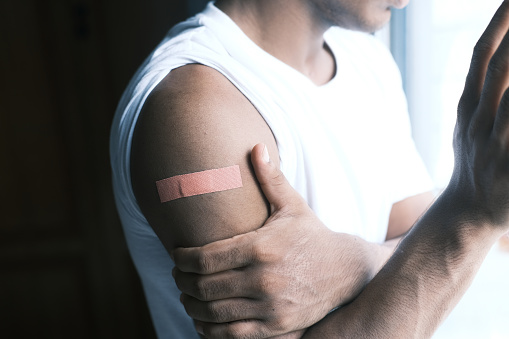Your home is supposed to be a safe place.
It’s supposed to be a place where you can feel secure and protected from danger.
With that being said, it’s also true that a lot of accidents happen at home.
In fact, according to statistics, in the year 2020, “an estimated 156,300 preventable injury-related deaths occurred in homes and communities.”
As you can already tell, these accidents can be especially dangerous and capable of causing damage, injury, mayhem, and even death.
With that being said, you also have a lot of power in helping to prevent some of these accidents from occurring in the first place.
Nobody has the power to foretell the future—and sometimes, accidents just happen.
With that being said, taking some common-sense steps to help you prevent unfortunate accidents from happening can do a lot to help you avoid running into such unfortunate things in the future.
And in this post, we’re going to explore 4 tips for avoiding dangerous household injuries.
1. Watch Out For Trip And Fall Hazards
Some of the most common household accidents revolve around trips and falls.
This could include leaving clutter in walking paths, wet floors, spilled substances that don’t get cleaned up (thereby creating a slick walking path), loose rugs, etc.
If you always strive to make sure that walking paths are clear of debris, and that there are no ‘slip hazards’ to be found—you can do a lot to help prevent these types of accidents from occurring.
2. Put Away Dangerous Chemicals
Sometimes, children and pets can accidentally expose themselves to dangerous chemicals without realizing that there’s any danger to be aware of.
This is less likely to occur with adults, usually because adults have the experience to know better than to mess with dangerous liquids, cleaners, chemicals, etc.
With that being said—whenever you get done with a cleaner, a chemical, a sanitizing agent, etc. always make sure that you put them away and that you keep them stored in a secure place under lock and key.
This will help to keep children and pets from getting into them—and thus, prevent incidences of accidental poisoning, exposure, etc.
3. Beware Of Hot Liquids
Imagine this scenario.
You’re boiling hot water on the stove.
You step away for a moment to take something out to the garage, only to hear a crash and a cry coming from the kitchen you just left.
You run back in, only to find that your toddler has grabbed the handle of the boiling pot and spilled it!
Always be careful of hot and boiling liquids, and keep them out of reach of children and pets.
You should also take care not to take unnecessary risks that could lead to you burning or injuring yourself as well.
4. Keep Electronics Away From Water
If an electronic appliance makes contact with some kind of body of water (for example—the plugged-in coffee pot somehow falls into the filled-up kitchen sink), absolute mayhem will likely ensue.
This could lead to sparks, electric surges, blown breakers, fire—or even worse, electrocution.
It’s always important to unplug electrical devices when they’re not going to be immediately used, in order to avoid the danger of this type of accident occurring.
This is also really important to remember with phone and device chargers.
For example—never EVER plug in your phone and use it while you’re soaking in the bath.
This is such a dangerous situation because it places you at such a high risk of electrocution.
Always try to be aware of these things so as to avoid danger.
